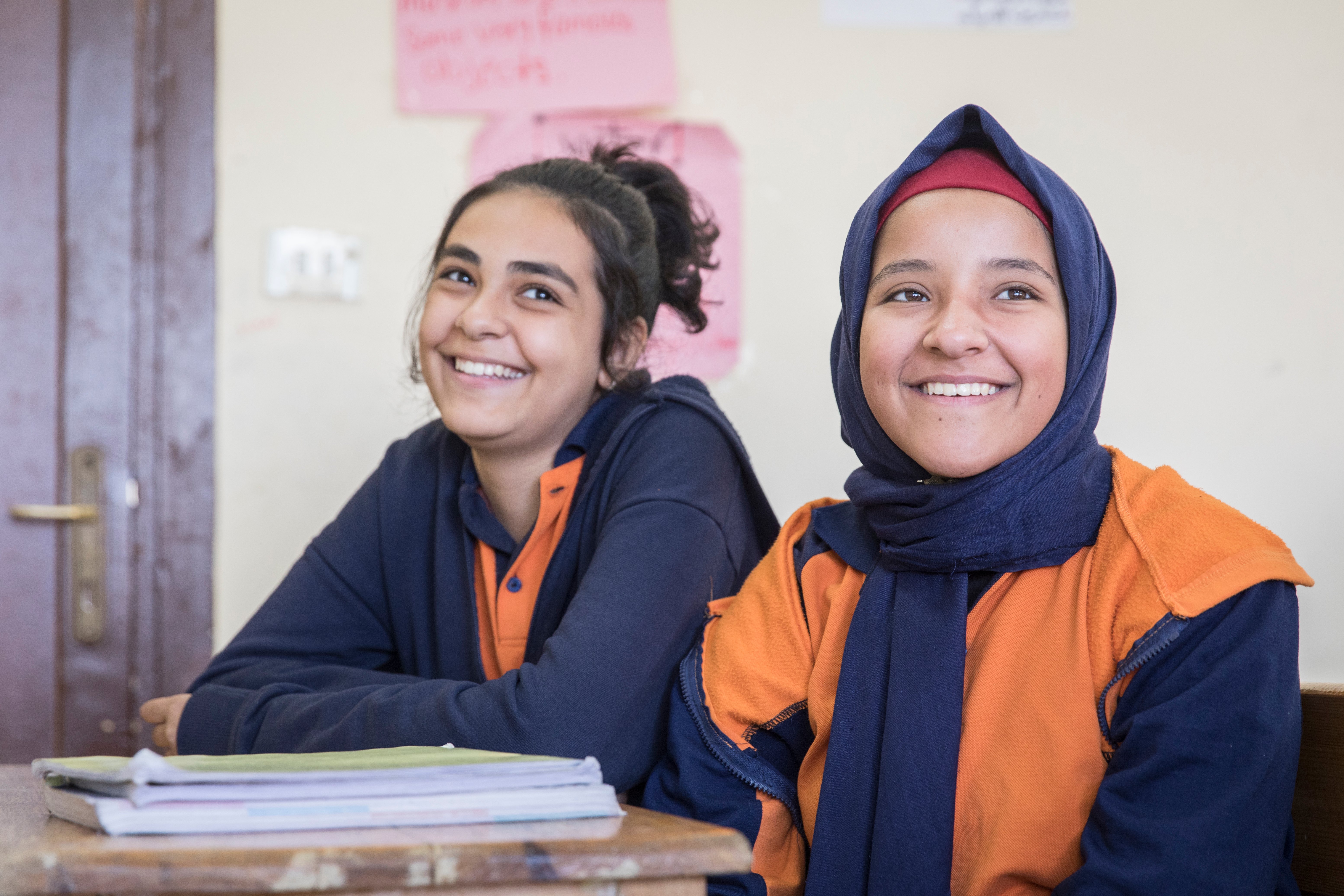Education also provides for the ‘human capital’ needed for the future reconstruction and economic development of areas of origin or settlement. Egypt’s predominantly young refugee population, 33.5 per cent of whom range in age from 3 to 17, is in dire need of adequate education services.
To address these needs, UNHCR advocates for the enrolment of refugees and asylum-seekers in public schools. Currently, Syrian, Sudanese, South Sudanese and Yemeni nationals have access to the public system on par with Egyptians.
In parallel and based on the needs identified by GOE, UNHCR provides training for teachers, supports the refurbishment of schools and supply of equipment, furniture, and other necessities to assist the Egyptian facilities in absorbing the refugee population. Moreover, we provide education grants to contribute to school fees, school uniforms, books, stationery, and transportation.
Documents & External Links
- UNHCR-UNESCO Policy Paper – What a waste: Ensure that migrants and refugees’ qualifications and prior learning are recognized
- Stepping up: Refugee Education in Crisis
- Her Turn: It’s time to make refugee girls’ education a priority
- Refugee Education 2030: A Strategy for Refugee Inclusion
- Education 2030: A Strategy for Refugee Education (French Version)
- Sustainable Development Goals – Inclusive and Quality Education for All
- Update on Education to the Standing Committee
- UNHCR-UNESCO Policy Paper: No More Excuses

